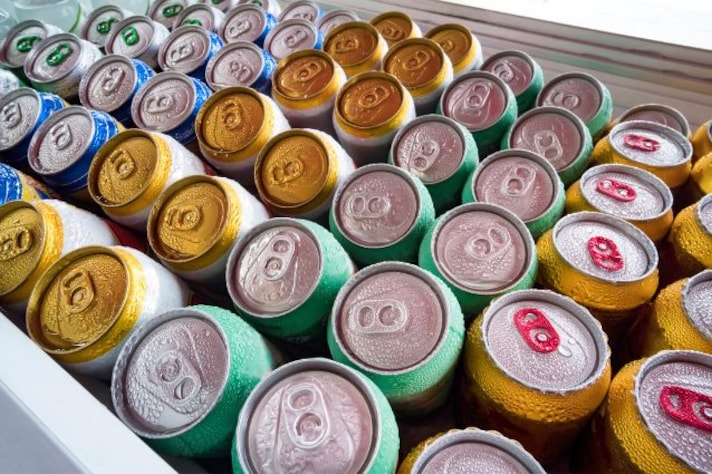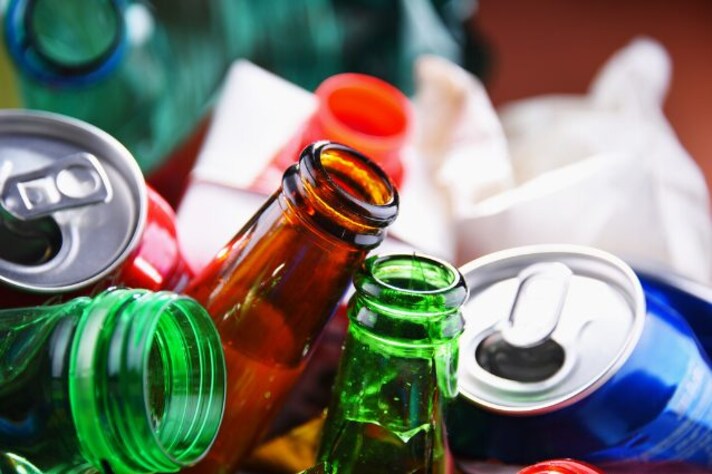Here’s Why You Should Never Leave Your Unopened Beer (Bottles or Cans) Inside of The Garage
Storing beer in the garage, even unopened, is a bad idea due to temperature swings, humidity, and sunlight, all of which can ruin its flavor and carbonation. Heat speeds up aging, cold risks freezing, and UV light can cause "skunky" beer. Bottles may corrode, and cans can rust in humid conditions, while pests add another risk.

When it comes to storing beer, the garage might seem like a convenient spot—it’s out of the way, spacious, and usually cool enough for other beverages. But while your car might be content there, your beer certainly isn’t. Whether bottled or canned, beer and garages are an unhappy pairing for reasons that go far beyond mere convenience. Here's why leaving your brew in the garage could lead to a sad pour, even if those bottles and cans are unopened.
Beer’s Worst Enemy: Temperature Swings
Garages are notorious for their lack of climate control, and beer is sensitive to fluctuating temperatures. Whether it’s a heatwave in July or a deep freeze in January, the garage can quickly go from a beer chiller to a beer killer. Heat accelerates the aging process of beer, causing its flavors to degrade. Conversely, freezing temperatures can make beer expand, potentially compromising the seal of the bottle or can. Even if no visible damage occurs, the beer's flavor profile will likely take a hit.
Light, Light, Baby (Or Why Sunlight is the Worst)
If your garage has windows or poorly insulated doors, sunlight could be sneaking in. UV rays are one of beer’s mortal enemies, especially for bottled beer. Ever opened a brew and thought it smelled a bit like a skunk? That’s because UV exposure causes chemical reactions in hops, leading to the dreaded "lightstruck" beer. Canned beer fares better against sunlight, but even it isn’t immune to heat and general degradation in a poorly controlled environment.

What Humidity Does to Cans and Bottles
Garages are often humid, which can wreak havoc on your beer’s packaging. Moisture can cause bottle caps to corrode and weaken the seal, leading to oxidation and stale beer. Cans, while more durable, aren’t invincible either—prolonged humidity can cause rust or compromise the integrity of the can. And no, the beer itself doesn’t “stay fresher in cans” under these conditions—it’s just as susceptible to the effects of storage missteps.
Even unopened beer can lose its carbonation over time if stored improperly. Extreme temperatures and poor seals can lead to depressurized bottles or cans, resulting in a flat, lifeless drink. Imagine cracking open a cold one only to find it tastes like soggy cardboard with no fizz. That’s not a party—it's a tragedy in a glass.
Aging Beer (In a Bad Way)
Beer is often brewed to be consumed fresh. While some specialty brews are designed to be aged, most beers are highly perishable. Leaving your six-pack in the garage doesn’t just ruin its flavor; it shortens its shelf life. Hoppy beers like IPAs are especially prone to deterioration, as their vibrant, citrusy notes fade when exposed to less-than-ideal conditions. You might end up drinking something that tastes more like disappointment than a double IPA.

Uninvited Guests
Garages are often havens for pests like mice, bugs, and even mold. If your beer is in cardboard packaging, it’s an easy target for critters looking for a cozy nesting spot. Even worse, leaks from damaged bottles or cans can attract ants or other unwanted visitors. A compromised beer isn’t just an annoyance—it’s an open invitation to the local insect population.
How to Properly Store Beer
The best place to store beer is somewhere cool, dark, and consistent—think a refrigerator or a basement, not a garage. While it might seem like overkill to give your brews such VIP treatment, good storage ensures that every sip tastes as the brewer intended. Even if you’re stocking up for a backyard barbecue or holiday gathering, keeping beer in the fridge until it’s ready to be served will always trump convenience.
;Resize,width=767;)
;Resize,width=712;)
;Resize,width=712;)

